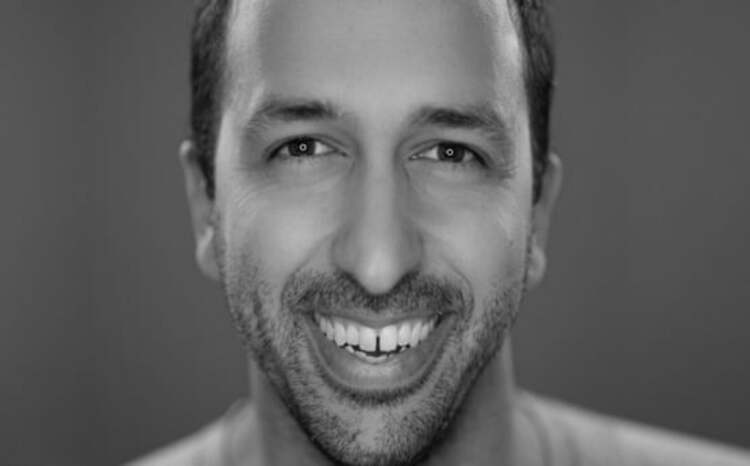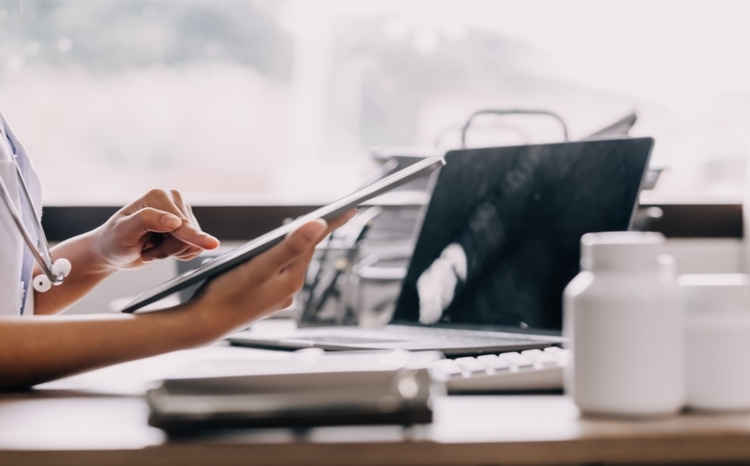How patient-collated data is supporting evidence-based care
- 8 March 2023

Health apps are not only empowering patients, but also providing clinicians with early access to important insights to support evidence-based care, says Dr Haidar Samiei, a consultant in emergency medicine and a clinical director for health care technology company EMIS.
The pandemic was a tipping point for public trust in digital health and the use of apps. Research by the Organisation for the Review of Care and Health Applications (ORCHA) found that during the pandemic, health app downloads increased by 25%, with 54,546 healthcare and medical apps available on Google Play Store.
For people with chronic conditions, such as diabetes and atrial fibrillation, the phenomenal growth in health apps is providing them with greater insight and control of their health. And, with their permission, vital data that clinicians can use.
The data collected through apps designed to monitor long term illnesses are now often requested ahead of planned medical appointments.
As a consultant in an emergency department, they help provide me with important insights; it’s now second nature to ask to see the data collected on a patient’s smartwatch or smartphone – especially if they’re presenting with a heart complaint.
But you would be wrong to assume it’s only those with long term illnesses using apps to monitor their health. I should know, I’m one of those very people.
In recent years we’ve seen a significant growth in people tracking a wide range of other issues such as brain health, stress, anxiety and sleep pattern behaviours. NHS staff were encouraged to use mindfulness apps during the pandemic. The one I personally use is linked to my smartwatch so I can monitor my progress.
Bi-hacking is also building in popularity – using data to understand your body so you can make incremental changes to diet and lifestyle to improve health and wellbeing – especially amongst athletes.
We’ve also seen a rise in proactive health mentoring with complex health issues too.
A recent report by Balance, an app designed by Dr Louise Newson to track the symptoms of perimenopause and menopause, revealed that on average a woman will visit her GP ten times before she receives the right support.
I often see patients who find themselves in emergency departments with chronic period and undiagnosed or untreated menopause-related symptoms, which often require multiple visits before someone can put symptom patterns together and reach a diagnosis.
Now, with app technology, patients can attend their clinical appointment with symptom data already mapped – effectively helping to shorten the period between exploration and treatment, and consequently changing the care pathway.
Apps as therapeutics
Technologies are developing at pace to not only track health trends, but also to respond to them and provide therapeutics.
Although not available yet in the UK, the NightWare app – an FDA-cleared, prescription digital therapeutical that improves sleep for adults with nightmare disorders or nightmares associated with Post Traumatic Stress Disorder (PTSD) – is being prescribed instead of medication to veterans in the States struggling with the disorder.
Here in the UK, apps are increasingly being recommended instead of prescribing medication, where appropriate. In May 2022 NICE recommended Sleepio, a £45 app that GPs can prescribe as an effective alternative to sleeping pills for people suffering from insomnia, which can be addictive.
Some medical devices, such as an insulin pump that can digitally record fluctuations in blood glucose levels, are being increasingly linked to smartphone apps.
Predicting health issues
While all of these apps are targeting a specific condition, others can use data collection to help clinicians predict a future health issue.
In the care sector, monitoring hydration levels and how steady a person is on their feet is growing in popularity as person-centred care becomes more important to help maintain health and dignity in old age.
But for others, as well, the evidence gathered from a person suddenly developing a limp or becoming unsteady can tell clinicians a lot about their state of health. For older people, it can show a decline or even point to early signs of dementia.
Apple added fall detection tracking to the Apple Watch and it’s only a matter of time before health metrics such as this sit side-by-side the insights gathered as standard on most smartphones such as heart rate, number of steps, calorie intake and sleep trends.
In providing clinicians with insight to support evidence-based care, health apps are highlighting the need for some traditional care pathways to evolve – something which should be embraced.
For years we’ve all been chasing the dream of early intervention. Now, through the data that’s collected on patients’ smartwatches and by smartphones, we finally have access to those crucial early insights.




